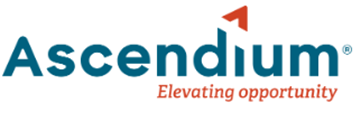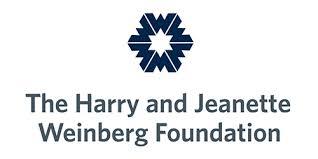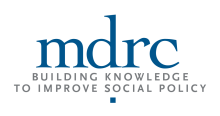Get to know the organizations we work with
Committed to social progress for minorities, the poor, and working people, the Pittsburgh Chapter of A. Philip Randolph Institute (APRI) is dedicated to providing programs that extend democracy, education, and opportunity to those traditionally disenfranchised or discouraged from participation.
Their programs aim to increase the labor movement’s participation in political life and career training opportunities. To this aim, APRI offers individuals the chance to gain real-world work experience through apprenticeships, while continuing to learn and progress toward full-time, well-paid employment. Pittsburgh APRI operates the Breaking the Chains of Poverty pre-apprenticeship program which helps individuals build the skills necessary to obtain family-sustaining careers in the building and construction trades, manufacturing, and energy sectors.
To increase enrollment numbers and expand their impact, APRI is partnering with MDRC to increase outreach to a larger population of potential customers.
MDRC Leads
Annie Utterback
Research Analyst, Site Lead
Donna Wharton-Fields
Senior Fellow, Advisor
Based in San Francisco, JVS Bay Area is a leading workforce development nonprofit working to close opportunity gaps in employment by supporting jobseekers with the skills and confidence to secure quality careers with family-sustaining wages. Over the past 50 years, JVS has helped thousands of people access quality jobs and economic mobility. With a dedication to promoting diversity, equity, and inclusion, their programs aim to advance economic mobility and racial equity by serving a diverse range of participants, including those from Black, Latine, Asian, and other communities of color.
JVS programs target key industries like technology, healthcare, and skilled trades, which face ongoing worker shortages. Individuals from disinvested communities often struggle to access these fields due to structural barriers and limited training opportunities. To address this challenge, JVS provides tailored services such as skills training workshops, certificates, employer engagement, and paid internships, aiming to place participants in high-paying jobs.
JVS is partnering with MDRC to assess gaps in completion rates across racial demographics and develop solutions to help participants make the complete journey from enrollment in training to placement and retention in gainful employment.
MDRC Leads
Keith Olejniczak
Research Associate, Site Lead
Clint Key
Research Associate, Advisor
Madison Strategies Group (MSG) is a Tulsa-based nonprofit that offers no-cost, comprehensive education and employment services to underserved populations. Founded in New York in 2010, the organization established a Tulsa location in 2011 to operate the WorkAdvance model. MSG offers technical training, job placement, and career advancement coaching to help Tulsans attain economic mobility and build a brighter future. The organization focuses on key industries like Healthcare, Manufacturing, Professional Services, Information Technology, and Transportation, and offers multiple advanced free job training and placement programs for the Tulsa region.
MSG's main program, WorkAdvance, is available to all Tulsans, while other programs target specific individuals such as young adults aged 18-24, parents and caregivers, or job seekers affected by the COVID-19 related economic downturn. By facilitating education and credential attainment, MSG sparks qualitative change, improving employment retention outcomes, wages, benefits, vacations, and precious family time. MSG's dedication to empowering underserved populations has made it a vital resource for Tulsans seeking positive change.
In their partnership with MDRC, MSG will focus on strengthening customer engagement by improving coaching practices in WorkAdvance.
MDRC Leads
Annie Utterback
Research Analyst, Site Lead
Frieda Molina
Director of EMHC Policy Area, Advisor
Since 1976, Towards Employment’s mission has been to champion the potential of every person to succeed in a rewarding career today, while working to create an equitable and inclusive workforce for tomorrow.
To bridge employment gaps, especially for Black and Brown career seekers, Towards Employment works to build skills, connections, and confidence of workers, while also working with employers to address job quality and by promoting policy and system change. To this end, the organization provides career readiness training, career planning, skill building through work experience, and technical training, and direct connection to a network of partner employers. Program participants can also access an array of supportive services throughout their enrollment, encompassing transportation, tools, uniforms, legal and financial assistance, as well as eviction and foreclosure prevention services. Towards Employment programs primarily focus on training individuals for work in the manufacturing, healthcare, culinary, and construction sectors.
Towards Employment is partnering with MDRC to create a dynamic “young adult experience” across their services, so that all young adult learners have a high-quality experience and receive the services they need to build a career and thrive.
MDRC Leads
Keri West
Research Associate, Site Lead
Donna Wharton-Fields
Senior Fellow, Advisor
Founded in 2000, Brooklyn Workforce Innovations (BWI) is a leading workforce development organization in New York City working to support individuals across the five boroughs of the city in building meaningful careers.
Through eight different programs, BWI helps individuals with historic and significant barriers to employment. The organization provides skills training, access to employer-recognized credentials, job placement, and career development support in key industries such as TV and film production, woodworking, technology, and commercial driving. BWI focuses on strengthening community and individuals by placing participants in high growth jobs that offer living wages and partnering with local nonprofits and employers.
Recognizing the challenges faced by participants who are affected by unemployment, BWI also provides supportive services during program delivery and offers individuals help with benefits access services, financial coaching, and other supports that facilitate the journey between training and retention in promising careers. The organization also provides career development services for participants for up to two years after they are placed in a job to ensure that individuals remain employed in the long term.
MDRC Leads
Keith Olejniczak
Research Associate, Site Lead
Clint Key
Research Associate, Advisor
The Lab Advisor
Rick Hendra
Director of CDI



